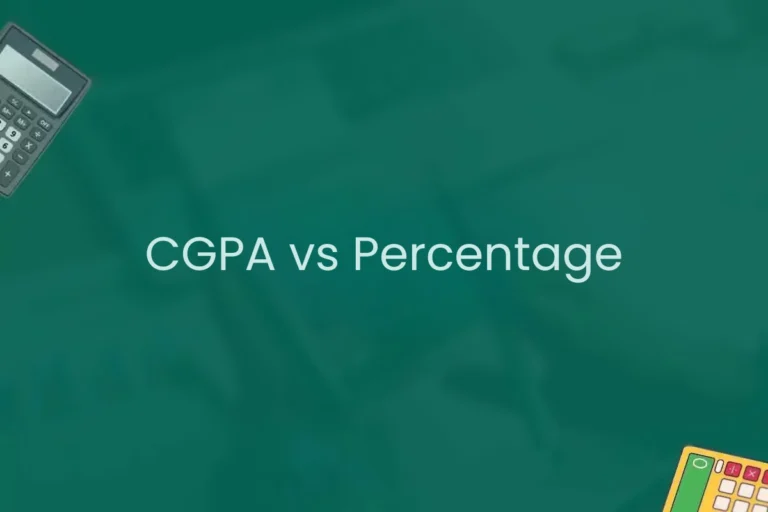Importance of CGPA and Percentage in Our Career

Academic performance plays a crucial role in shaping career opportunities. CGPA (Cumulative Grade Point Average) and percentage are two major indicators of academic success that impact higher education, job prospects, and professional growth.
Many students and professionals often wonder how much weight these metrics hold in the real world. In this article, we will explore the importance of CGPA and percentage, their influence on career growth, and how to balance academic excellence with practical skills.
Most Use Calculator
Understanding CGPA and Percentage
What is CGPA?
CGPA is a standardized grading system used in many educational institutions to evaluate a student’s academic performance over a period. It is calculated on a scale (e.g., 4.0, 10.0) and represents the average of grade points obtained in all subjects.
What is Percentage?
Percentage is a more traditional method of academic evaluation that expresses a student’s marks in terms of 100. It provides a clear and straightforward representation of performance in examinations.
Key Differences Between CGPA and Percentage
| Factor | CGPA | Percentage |
|---|---|---|
| Evaluation Scale | Usually on 4.0 or 10.0 | Out of 100% |
| Precision | Provides an overall GPA | Shows exact marks |
| Interpretation | Used by many global institutions | More commonly used in certain countries |
Importance of CGPA and Percentage in Career Growth
1. Higher Education Opportunities
Many universities and colleges set minimum CGPA or percentage criteria for admissions. A good CGPA can significantly improve chances of securing scholarships and admissions in prestigious institutions.
2. Job Recruitment and Employment
Employers often consider CGPA and percentage as a benchmark to filter candidates, especially for fresh graduates. Many multinational companies have a minimum academic requirement for hiring.
3. Scholarships and Financial Aid
A high CGPA can make students eligible for merit-based scholarships, reducing financial burdens and opening doors to better educational opportunities.
4. Competitive Exams and Certifications
Many competitive exams, such as UPSC, GRE, GMAT, and GATE, consider academic scores for eligibility criteria. Strong academic performance can provide a competitive edge.
5. Career Growth and Promotions
In some industries, a strong academic record can influence promotions and career advancements. It reflects dedication, discipline, and consistency.
6. Internship and Research Opportunities
High CGPA and percentage can help students secure internships in reputed organizations, research projects, and fellowships, enhancing career prospects.
Balancing CGPA with Practical Skills
While CGPA and percentage are important, recruiters also focus on practical skills, experience, and soft skills. Here’s how to maintain a balance:
- Gain Practical Experience: Participate in internships, projects, and extracurricular activities.
- Develop Soft Skills: Communication, leadership, and teamwork are equally important.
- Focus on Skill-Based Learning: Certifications, workshops, and online courses add value.
- Network Effectively: Connect with industry professionals and mentors.
Additional Learning Resources
If you’re curious about how different measures translate in real life, such as Cat Years to Human Years, exploring conversion scales can be insightful.
Conclusion
While CGPA and percentage play a significant role in academic and career growth, they are not the sole determinants of success. A holistic approach that includes skill development, networking, and practical experience is essential for a prosperous career. Striking the right balance between academic excellence and real-world skills ensures long-term professional success.





